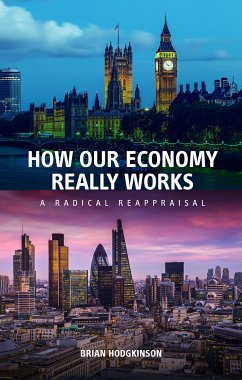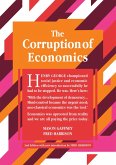This book is a response to the fundamental questions that have confronted the UK economy for decades which successive governments of the right and the left have failed to deal with adequately. Some of these questions are obvious, such as 'Why does poverty still beset a large number of people, whilst others are grossly well-off?'; 'Why are house prices continuously rising much faster than inflation, so that more and more people are left without a house of their own, or are borne down by the weight of a mortgage?'; 'Why does UK productivity remain persistently low, despite constantly improving technology?'. Other questions are less obvious, or are ignored through a belief that they arise from the natural order of things, such as 'Why do the majority of workers find themselves as employees in jobs that give them little real sense of fulfilment?'; 'Why is there awful traffic congestion, despite heavy expenditure on transport infrastructure?'; 'Why does the tax system fail to bring about greater equality, despite progressive rates of tax on incomes?'. These questions have confronted the UK economy for decades without resolution by governments of the right or left. It is the failure of economics, the author argues. Economists have long asserted that three factors of production lie at the root of their subject: land, labour and capital. Yet in the development of the subject into theories and practical applications there has been a thorough analysis of labour and capital but a grievous omission of the factor of land. This is reflected in the minimal place it holds in modern textbooks, in popular discussion and political debate. Much of the argument about major issues, like industrial policy, the distribution of wealth and income and government policy reverts to a polarised struggle between two antagonists, labour and capital. The third factor, land, hides in the background unacknowledged yet exerting a major influence on the outcome of the whole economic process.
Dieser Download kann aus rechtlichen Gründen nur mit Rechnungsadresse in A, B, BG, CY, CZ, D, DK, EW, E, FIN, F, GR, H, IRL, I, LT, L, LR, M, NL, PL, P, R, S, SLO, SK ausgeliefert werden.









